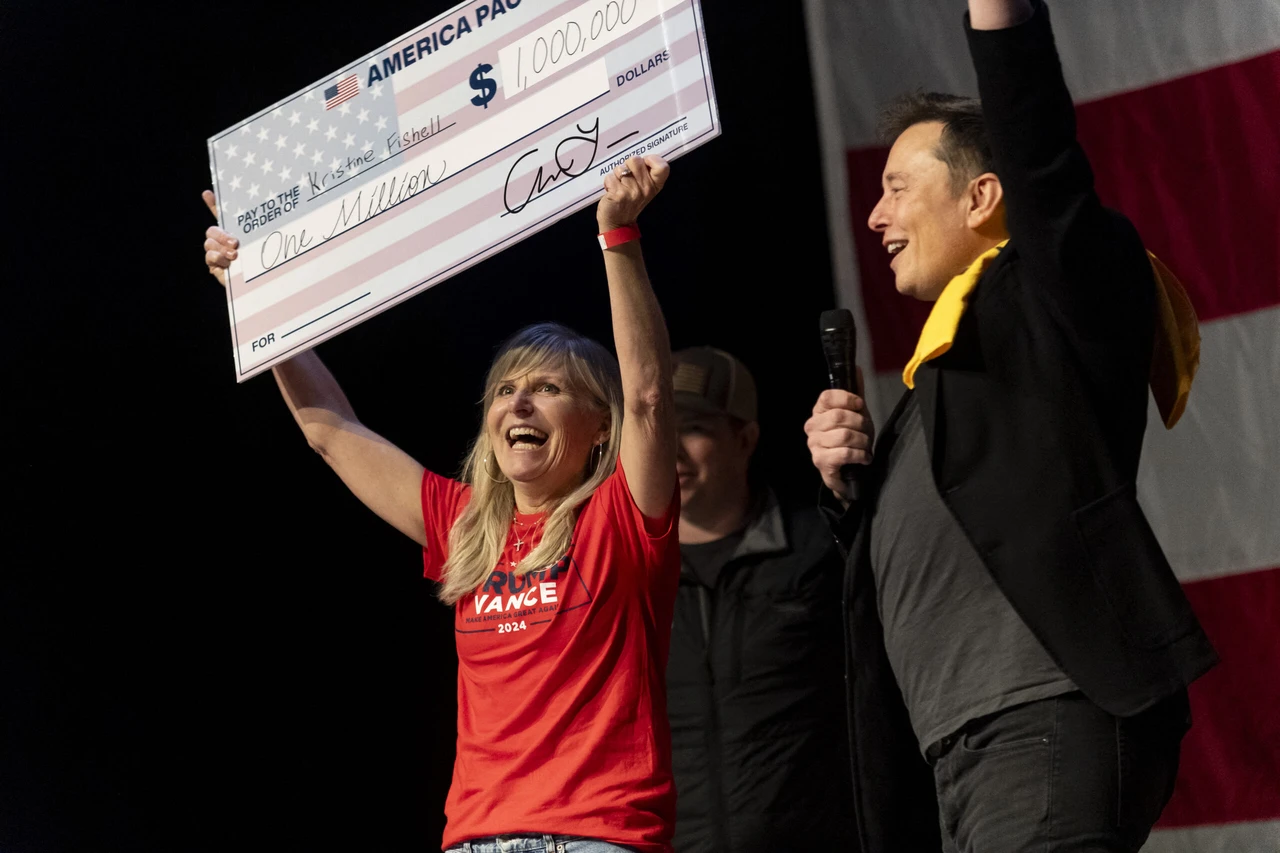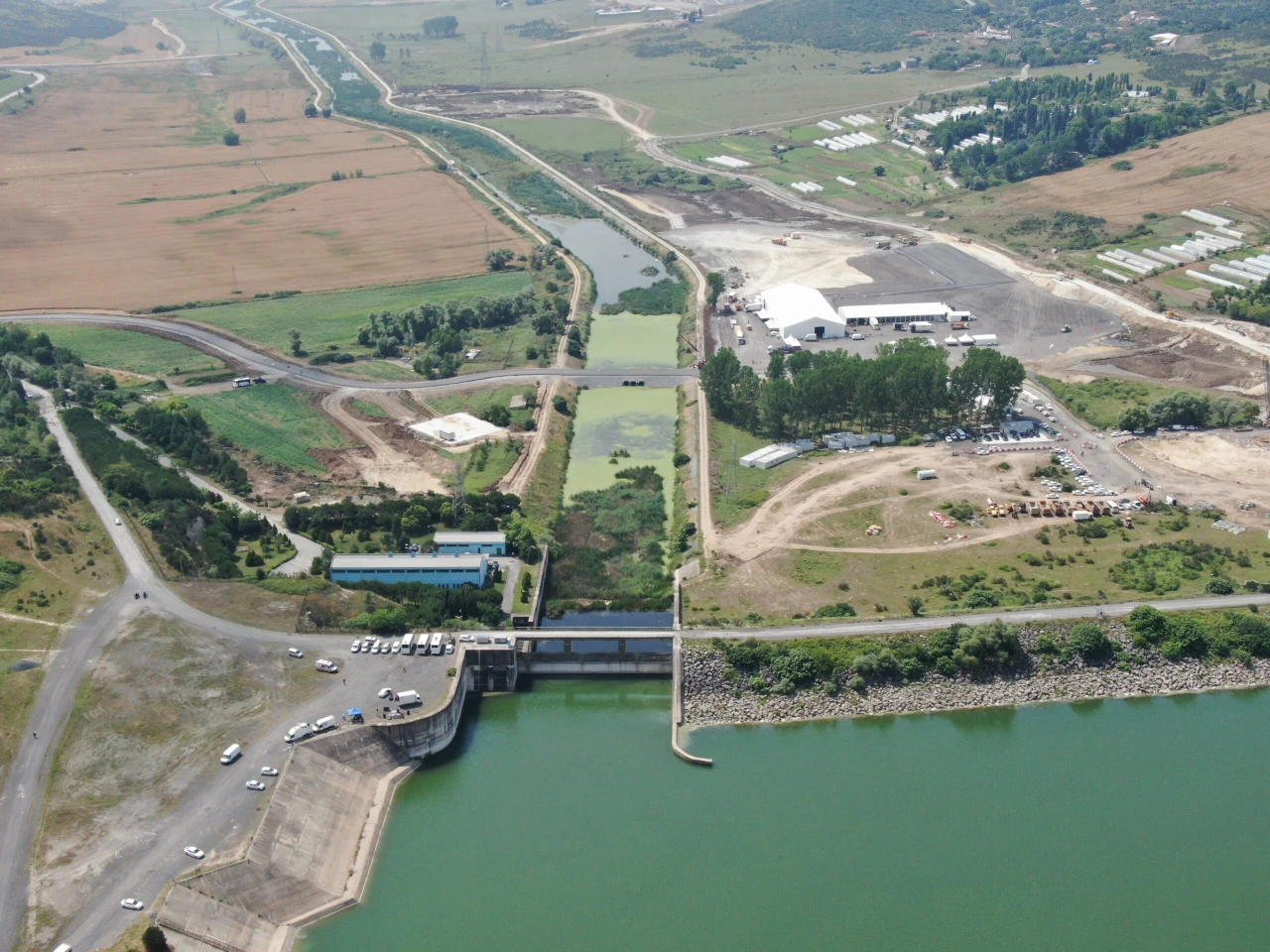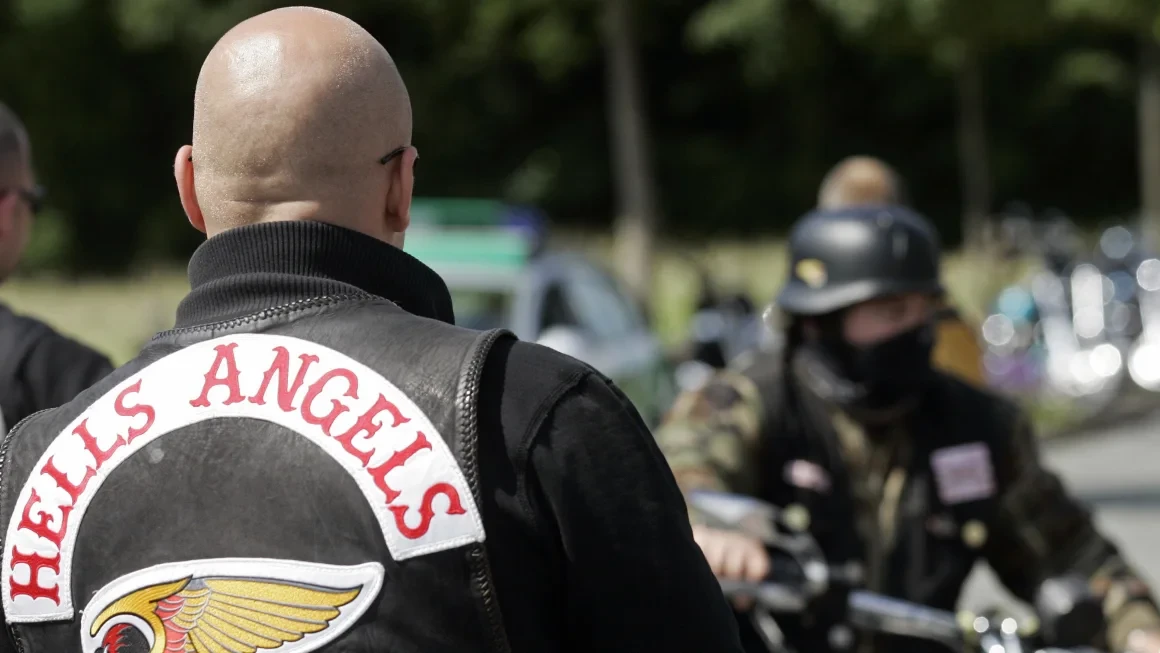Musk proposes $1 million to registered voters amid legal experts’ concerns about legality
 SpaceX and Tesla founder Elon Musk awarded Kristine Fishell with a $1 million check during the town hall at the Roxain Theater in Pittsburgh, United States on October 20, 2024. (AFP Photo)
SpaceX and Tesla founder Elon Musk awarded Kristine Fishell with a $1 million check during the town hall at the Roxain Theater in Pittsburgh, United States on October 20, 2024. (AFP Photo)
Elon Musk’s recent announcement of a contest offering $1 million to a registered voter in a swing state every day until the U.S. Election Day on November 5 has raised significant legal concerns. The initiative, framed as a means to encourage voter participation, requires entrants to sign a petition advocating for “free speech & the right to bear arms.”
The contest was unveiled during a Saturday event in Pennsylvania, one of the seven pivotal swing states that could determine the outcome of the presidential race between Democratic candidate Kamala Harris and Republican former President Donald Trump. While Harris’s campaign has not publicly commented on the contest, Pennsylvania’s Democratic Governor Josh Shapiro has called for law enforcement scrutiny. “I think it’s something that law enforcement should take a look at,” he stated on NBC’s Meet the Press.
Legal experts are questioning the contest’s stipulation that participants must be registered to vote in swing states. Danielle Lang, a professor at Georgetown Law School specializing in election law, emphasized, “It is illegal to give out money on the condition that recipients register as voters.” She noted that the contest’s requirements likely violate federal law by mandating that potential entrants be registered voters in the specified states.
Rick Hasen, a political science professor at UCLA, echoed these concerns on his Election Law Blog, highlighting a specific law that prohibits offering monetary incentives for voter registration. He warned that violations could lead to severe penalties, including fines of $10,000 or up to five years in prison.
However, not all legal analysts agree on the implications of Musk’s actions. Brad Smith, a former chairman of the Federal Election Commission, characterized the situation as a “gray area.” He suggested that since Musk is not directly paying individuals to register but incentivizing them to sign a petition, he might avoid legal repercussions.
In defense of his initiative, Musk has asserted that the contest aims to raise awareness about voting. “We want to make sure that everyone in swing states hears about this and I suspect this will ensure they do,” he wrote on X, the social media platform he owns. His recent efforts to support Trump’s campaign also include a substantial $75 million donation to a pro-Trump political action committee and appearances at campaign rallies.
During the rally where he announced the contest, Musk encouraged attendees to engage with their communities. “Just go out there and talk to your friends and family and acquaintances and people you meet in the street and… convince them to vote,” he urged.
Lang noted that initiatives like Musk’s are not uncommon during election cycles, though she highlighted the significant scale of this particular contest. “We tend to see some businesses that engage in questionable activity along these lines, such as offering a free item for showing an ‘I Voted’ sticker,” she remarked. “But this is notable for its far larger size.”



